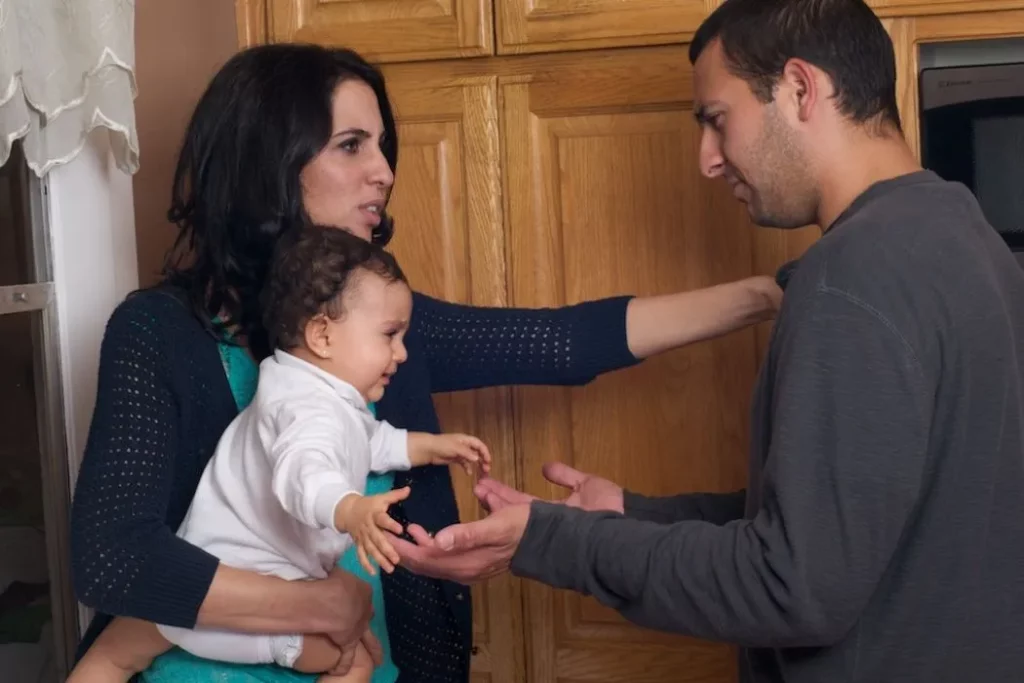
Providing Divorce Mediation Services Throughout California
Providing Divorce Mediation Services Throughout California
Home » Divorce and Family law Blog » Understanding Visitation Rights in California | Families First Mediation

You may want to restrict your ex-spouse’s visitation rights because they are not paying child support, or you want to protect your child. However, when emotions run high, some custodial parents may deny the other parent visitation time just to punish them.
A non-custodial parent does not have primary or joint physical custody with the other parent. The non-custodial parent has more limited time, called visitation rights.
The non-custodial parent’s visitation rights are defined in a timeshare schedule. The timeshare schedule can include the regular schedule, holiday schedule and the summer schedule.
Whatever time the non-custodial parent doesn’t have, the custodial parent has that time with the child.
In California, each parent, after divorce, has equal rights in the relationship with the child. A divorcing party could face penalties if they (illegally) restrict the non-custodial parent’s time with their child.
If you feel that a non-custodial parent could harm the child, you can file an emergency request with the court to get a temporary emergency custody order.
If you do not have an emergency, and cannot agree with the other parent, you can file a Request for Order for Temporary Child Custody (FL-300), to get temporary child custody orders.
For the majority of the California counties, you must participate in court custody mediation prior to your temporary child custody hearing.
However, mediating your child custody or parenting plan is a far better option. Studies show that custody mediation results in better custody agreements that are more likely to be followed between the parents.
Mediation also costs less and moves faster. Court ordered or provided mediation is a great option for those with limited resources or simpler cases. For those who have the resources for private mediation or have more complicated cases, court custody mediation will be too limiting.
The courts allot each case limited time given there is a consistent strain on court resources.
Instead, consider private mediation for your custody cases, whether it is a parentage case, part of your divorce matter, or a modification of child custody.
Families First Mediation empowers parents to make their own decisions as per their wishes and their child’s best interests. Book a FREE Divorce Mediation Consultation now.
This article explores when custodial parents can deny visitation, the consequences of denying visitation, and general grounds that compel custodial parents to withhold visitation.
A parent who does not have physical custody but has visitation rights (such as a weekend of every month) to the child(ren) following divorce or separation is known as non-custodial parent. They have limited legal and financial obligations regarding the child.
Custodial parent has physical and legal custody of the child. The child spends most of their time with the custodial parent.
To learn about custody types and the responsibilities of custodial parents, check our article by clicking on the provided link.
Visitation right is the non-custodial parent’s time with the child. It is also known as parenting time.
Visitation rights ensure that both parents have access to the child, though the child spends most of the time with the parent who has either primary or sole physical custody (custodial parent).
The non-custodial parent must be awarded time either by a court order or the parties’ agreement. You can reach an agreement without going to court by negotiating an agreement with the other parent and then signing it. It’s best practice to also file it with the court. If you are in a divorce or parentage proceeding, this would be a “Stipulation and Order for Temporary Child Custody.”
Even if it is hard to work with the other parent, it’s very important to at least try and mediate your child custody matter. Studies demonstrate that children are most resilient to their parent’s separation when their parents are able to cooperate.
At Families First Mediation, we can help you get in control of the parenting conversation and set you up with a long-lasting parenting arrangement.
Sometimes non-custodial parents have no, limited, or supervised visitation rights. Read further to learn about this.
You, as the custodial parent, cannot legally deny visitation rights of the non-custodial parent provided an existing custody order or agreement is in effect.
Though you may have valid reasons and evidence for restricting visitation to non-custodial parents, you have to comply with the existing agreement or court order.
Failing to comply with the current custody agreement would have legal repercussions (losing custody rights) as you are giving grounds to your ex-spouse to take you to court.
Even if you do not believe the other parent should have visitation with your child, you have to stick to the existing court-ordered custody agreement until the current one is modified.
To modify the existing custody agreement, you can file a Request for Order with the court. You will have to provide factual evidence to support your requested changes to the existing order.
For an urgent and emergency situation, such as abuse, neglect, or violence, you can file an emergency motion with the court to get your existing custody order modified.
Or, you can talk to child protection services to help you get an emergency temporary court order that can protect your child while limiting access to the non-custodial parent.
For a valid urgent and emergency situation, the court may order the following things considering the child’s best interests:
Instead of hiring an attorney and attending the court’s hearing, opt for a more private and personal approach to your custody dispute. Child custody mediation allows you and the other parent to be in a professional space to discuss your concerns about your child’s well-being and safety.
Reach out to us here at Families First Mediation free and know how mediation can best serve and help you.
Child support is a completely separate and different subject from child visitation rights under the California Family Code.
Withholding the other parent from seeing their child merely on the basis that the non-custodial parent is not paying support would be illegal.
You may have to face the following consequences on denying visitation if your ex-spouse goes to court to enforce their rights:
The court can hold custodial parents in contempt of court.
You can be imposed with heavy fines (community service or compensation to the non-custodial parent for attorney fees, etc.)
The court could order the custodial parent to spend some time behind bars
The court could order the custodial parent to take a parenting class to better the co-parenting relationship.
Save your hard-earned money and energy by mediating your child custody. Families First Mediation would love to hear from you regarding the modification in child custody. Book your video consultation, now!
The following are the rational grounds that compel the custodial parent to prevent other parent from seeing the child:
The custodial parent, fearing kidnapping or the probability of kidnapping, may try to deny visitation to the non-custodial parent.
To avoid parental abduction, you can file a request for an emergency temporary custody order, which the court may consider and restrict visitation to the non-custodial parent or require court-ordered supervised visitation to prevent abduction or any other harm.
If the custodial parent thinks that their ex-husband’s or wife’s mental health could affect the child, they may make attempts to deny visitation.
If the non-custodial parent has a history of sexual abuse or a child could suffer from sexual abuse (child molestation), this would be a valid reason for the non-custodial parent to have no custodial time. Likewise, the custodial parent may refuse to honor visitation if the non-custodial parent is impaired by drugs or alcohol.
The custodial parent may deny visitation rights of non-custodial parent custody if the parent fears that the child will be physically harmed by the other parent.
The custodial parents may suspend visitation if their child denies meeting their non-custodial parent.
The custodial parent can try to stop visitation if they find that the non-custodial parent could alienate the child or turn the child against them.
The custodial parent may deny visitation to the non-custodial parent if the primary parent finds issues with the religious upbringing of the other parent.
If you have evidence regarding all or one of these mentioned behaviors, , you need to file a request for an emergency custody order, instead of withholding visitation.
However, always protect your child first. If your child is endangered, call emergency personnel for assistance. You can call the Domestic Violence Hotline at 1-800-799-7233 or find a local organization here. For your child’s safety, you can reach out to Child Protective Services.


Families First Mediation is a pioneer in the field of divorce mediation. Our entire divorce mediation team takes great pride in being active trainers, divorce mediators and teachers of mediation in the greater California area. If you are considering a collaborative divorce, legal seperation or looking for a san jose divorce lawyer we have services that may be beneficial to you. Take advantage of our vast expertise and background in the field of divorce mediation and our genuine desire to help with your divorce mediation services.